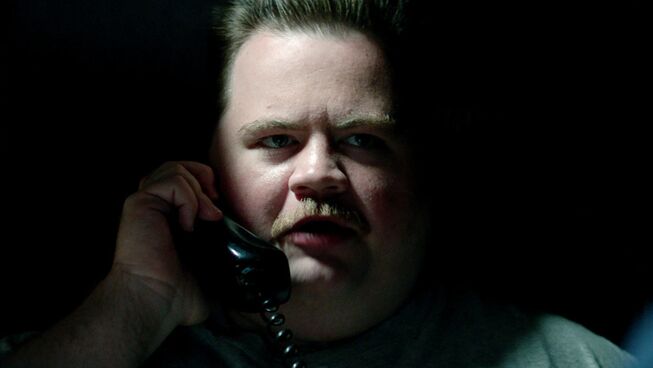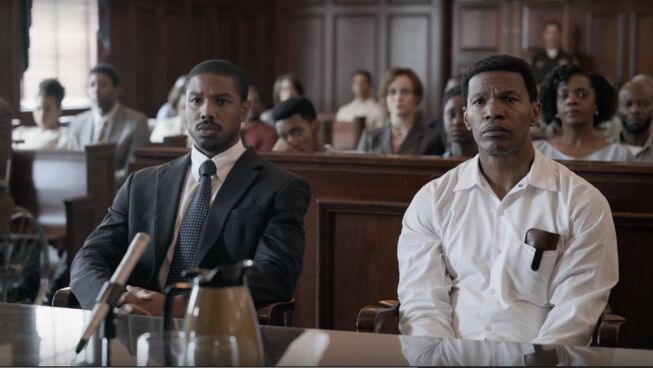
⭐️ ⭐️ ⭐️ ⭐️ 1/2 (out of 5)
Who could have predicted that a character that was created in 1897 by the visionary writer, H.G.Wells, could still have something to say in 2020. The Invisible Man has gone through a multitude of literary and cinematic alliterations. A conceptual premise and moral juxtaposition that manages to stand the test of time. In production for over a decade, it took the pairing of uber-producer Jason Blum and writer/director Leigh Whannell (Saw, Insidious) to make the invisible visible.
Whannell’s vision was taking the focus from the titular character to the potential victim of his crimes to provide a fresh view of The Invisible Man. Cecilia Kass (Elisabeth Moss) has been under the control of her boyfriend and optics genius, Adrian Griffin (Oliver Jackson-Cohen) for years. When she finally manages to escape his seaside home that serves as her prison, the young architect tries to find solitude and safety with her friend, police officer James (Aldis Hodge). Each day that follows is filled with fear and paranoia until she is made aware of Adrian’s death by suicide.
In a bizarre turn of events, the executor of his estate is his younger brother who informs Cecilia that she has inherited five million dollars from Adrian. With a certain amount of freedom from her former boyfriend’s control, the young woman begins to live her life again. She applies for work, goes out in public and enjoys time with friends and family, then strange things start to occur. Between unexplained accidents, bizarre correspondence and inexplicable movements in the house, Cecilia begins to believe that Adrian is still alive. Not only living, but invisible to everyone, including herself. A phenomenon that is impossible to explain without sounding crazy to the people around her. The situation causes terror in her life to continue. How can she make others believe Adrian is still alive and stalking her every move?
This combination proves to be utterly inspired. The brilliance of HG Wells writing in the hands of a master of horror combined with the outstanding performance of Elisabeth Moss makes this film of invisibility turn into the must-see movie of the season. It is a rare moment when a filmmaker can take such familiar material and make it into something fresh and new. Even for those who are not fans of horror, like Jordan Peele’s Get Out, this is an experience that goes beyond a mere jump-scare fest.
Moss manages to embody this character and deliver another stellar performance. Her depiction of the psychological victim and sympathetic lead becomes so believable that the emotion jumps off the screen. She works with Whannell’s script and proves she is an acting tour de force of this era. Then to have the Australian director utilise the camera and negative space as characters within the film provides the beautiful backdrop for Moss to prove her artistic skills. The simplicity of the story and the minimalist method of character development leaves the imagination of the audience to run wild in this world. A production that proves that terror does not need to be all screams and blood, but can be found in the deepest recesses of your mind.
The Invisible Man does not strike fear into the hearts of audiences like Dracula, the Wolfman and Frankenstein, until now. This film will move him to the top of Universal’s monsters list. A work that needs to be experienced to be understood, one that needs to be seen despite most of what is on screen is invisible. An understated brilliance that lifts the bar of horror and filmmaking.
Reel Dialogue: Would you want to be invisible?
This feels like a discussion between fans at Comic-con: "what superpower would you want to have?" Some people may say that invisibility would be high on the list, but this is the very thing that H.G. Wells addresses in his original story and Leigh Whannell exposes it in his film. Through invisibility, Griffin gains triumph over science and he sees that this affords him great power. In having these abilities of physical transparency and when given the moral choice, he shows that the heart of man is more likely to choose the immoral path.
Thousands of years before The Invisible Man was written, the Jewish prophet, Jeremiah wrote, ‘the human heart is the most deceitful of all things, and desperately wicked. Who really knows how bad it is?’ A statement that continues to prove itself true in literature, film and life through the actions of humanity against one another.
A discussion for the ages is what people would do when given great power. The points that both Wells and the ancient prophet address is the fact that what we think is invisible will eventually be made visible. Whatever is in our hearts eventually does come to light and can be seen by all. The answer in the realm of science fiction usually leads to the death of the lead character, a tragic solution to the problem. Interestingly, the biblical solution to this issue does come down to a death. A tragic, but triumphant death that affords an eternal solution to this query of the wickedness of man's heart.
“Once you were alienated from God and were enemies in your minds because of your evil behaviour. But now he has reconciled you by Christ’s physical body through death to present you holy in his sight, without blemish and free from accusation.” Colossians 1:21–22
This merely begins the discussion, if you would like to know more click on the link provided. City Bible Forum






